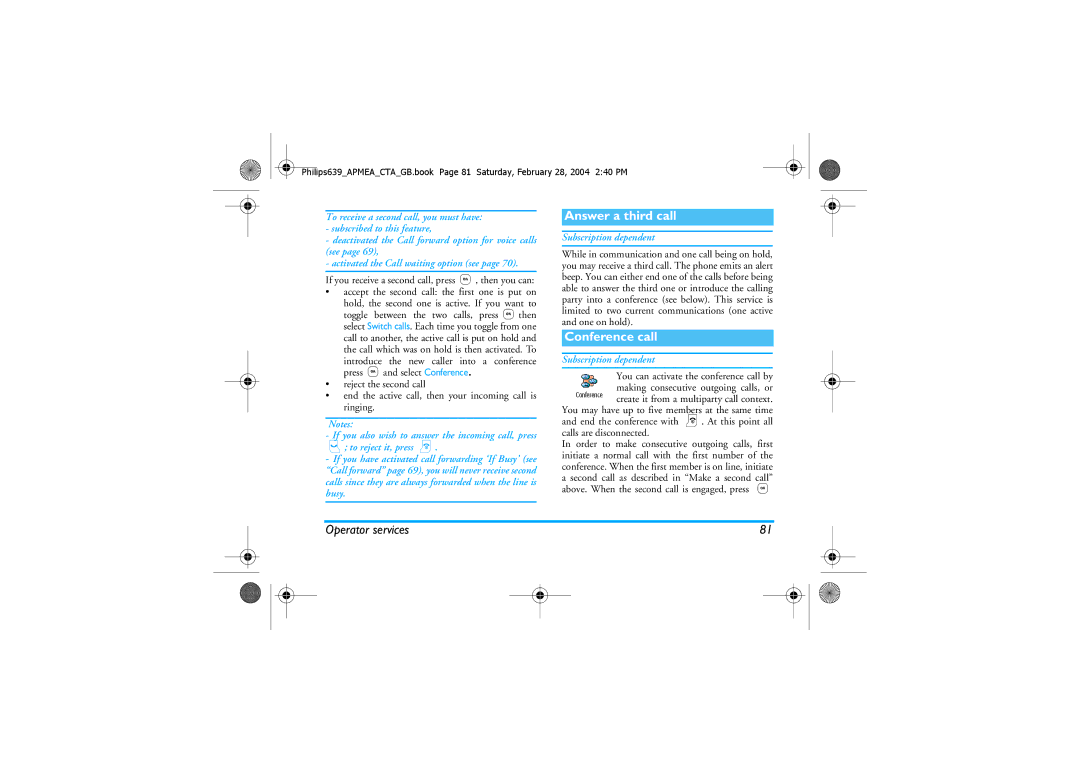
Philips639_APMEA_CTA_GB.book Page 81 Saturday, February 28, 2004 2:40 PM
To receive a second call, you must have:
-subscribed to this feature,
-deactivated the Call forward option for voice calls (see page 69),
-activated the Call waiting option (see page 70).
If you receive a second call, press,, then you can:
•accept the second call: the first one is put on
hold, the second one is active. If you want to toggle between the two calls, press,then select Switch calls. Each time you toggle from one call to another, the active call is put on hold and the call which was on hold is then activated. To
introduce the new caller into a conference press,and select Conference.
•reject the second call
•end the active call, then your incoming call is ringing.
Notes:
-If you also wish to answer the incoming call, press (; to reject it, press ).
-If you have activated call forwarding ‘If Busy’ (see “Call forward” page 69), you will never receive second calls since they are always forwarded when the line is busy.
Answer a third call
Subscription dependent
While in communication and one call being on hold, you may receive a third call. The phone emits an alert beep. You can either end one of the calls before being able to answer the third one or introduce the calling party into a conference (see below). This service is limited to two current communications (one active and one on hold).
Conference call
Subscription dependent
You can activate the conference call by
making consecutive outgoing calls, or Conference create it from a multiparty call context.
You may have up to five members at the same time and end the conference with ). At this point all calls are disconnected.
In order to make consecutive outgoing calls, first initiate a normal call with the first number of the conference. When the first member is on line, initiate a second call as described in “Make a second call” above. When the second call is engaged, press ,
Operator services | 81 |
| |||
|
|
|
|
|
|
|
|
|
|
|
|
|
|
|
|
|
|
